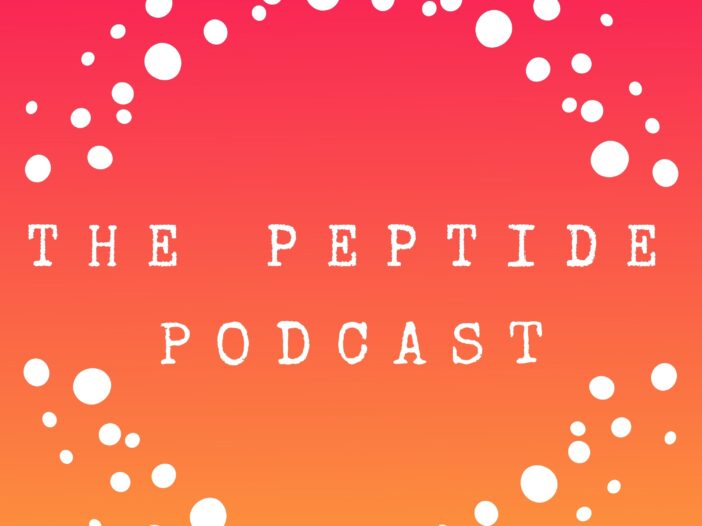
Insulin resistance isn’t just about what we eat. It’s about how our bodies respond to food, how we store fat, and how our hormones work together to keep everything in balance. And did you know that insulin resistance can look different depending on whether you’re a man or a woman?
In this episode, we’ll break down the unique symptoms of insulin resistance in both men and women, from weight gain and fatigue to hormonal disruptions and more. Whether you’re concerned about your own health or just curious about this metabolic condition, this episode will help you understand how insulin resistance manifests differently in each gender and why it’s so important to recognize early symptoms.
What is insulin resistance?
Insulin resistance occurs when the body’s cells become less responsive to insulin, leading to higher blood sugar levels. While both men and women can experience similar underlying metabolic changes, insulin resistance symptoms may manifest differently in each gender due to hormonal and physiological differences.
Insulin Resistance Symptoms in Women:
- Weight Gain (Especially Around the Abdomen and Hips)
Women may notice weight gain around the abdomen, hips, and thighs. The hormonal fluctuations in women, particularly with estrogen and insulin, may cause fat to accumulate more readily in these areas. - Polycystic Ovary Syndrome (PCOS)
Insulin resistance is a key factor in PCOS, a condition that is characterized by irregular periods, excessive hair growth (hirsutism), acne, and ovarian cysts. Insulin resistance can exacerbate the symptoms of PCOS. - Irregular Menstrual Cycles
Elevated insulin levels can interfere with hormonal regulation, causing irregular or absent menstrual cycles. This is often seen in women with PCOS or those who are insulin-resistant. - Fatigue and Energy Slumps
Women with insulin resistance may feel more fatigued or experience energy dips throughout the day as the body struggles to process glucose for energy efficiently. - Increased Hunger and Cravings (Particularly for Carbs)
Insulin resistance can lead to constant hunger or cravings for sugary, high-carb foods, as the body’s ability to process and utilize glucose effectively is impaired. - Skin Changes
Conditions like Acanthosis Nigricans, which results in dark, thickened skin around the neck, armpits, or groin, are more common in women with insulin resistance. Women may also experience skin tags, especially around the neck or underarms. - Mood Swings and Depression
Insulin resistance can impact the balance of neurotransmitters in the brain, leading to mood swings, irritability, and even contributing to symptoms of depression or anxiety in some women. - Increased Risk of Gestational Diabetes
Women who develop gestational diabetes during pregnancy are at a higher risk of developing type 2 diabetes and insulin resistance later in life.
Insulin Resistance Symptoms in Men:
- Abdominal Fat (Visceral Fat)
Men are more likely to store fat in the abdominal area, known as visceral fat. This type of fat is linked to an increased risk of insulin resistance and metabolic syndrome. It can contribute to a larger waist circumference and an “apple-shaped” body. - Low Energy and Fatigue
Men with insulin resistance may experience chronic fatigue and decreased energy levels, as their bodies are less effective at converting glucose into usable energy. - Reduced Muscle Mass
Insulin resistance may lead to reduced muscle mass, as insulin is also a hormone involved in muscle repair and growth. Men might notice a decrease in strength or difficulty gaining muscle despite exercise. - Increased Hunger and Cravings
Like women, men with insulin resistance may also experience increased hunger, particularly for high-carb and sugary foods. This can lead to overeating or difficulty maintaining a healthy weight. - Erectile Dysfunction
Insulin resistance can impair blood flow and affect hormone levels, leading to erectile dysfunction (ED). This is a common issue for men with insulin resistance or metabolic syndrome. - High Blood Pressure
Insulin resistance is often associated with hypertension (high blood pressure), which is a risk factor for heart disease. This may be one of the early signs of insulin resistance in men. - Fatty Liver Disease
Non-alcoholic fatty liver disease (NAFLD) is a condition in which fat builds up in the liver and is closely associated with insulin resistance. It is more common in men and can lead to liver inflammation or more serious liver conditions if left unchecked. - Sleep Apnea
Men with insulin resistance may be at higher risk for sleep apnea, a condition characterized by interrupted breathing during sleep, which can worsen metabolic problems and further disrupt insulin sensitivity.
Thanks again for listening to The Peptide Podcast. We love having you as part of our community. If you love this podcast, please share it with your friends and family on social media, and have a happy, healthy week!
We’re huge advocates of elevating your health game with nutrition, supplements, and vitamins. Whether it’s a daily boost or targeted support, we trust and use Momentous products to supercharge our wellness journey.
Momentous only uses the highest-quality ingredients, and every single product is rigorously tested by independent third parties to ensure their products deliver on their promise to bring you the best supplements on the market.
If you’re ready to dive deeper into the world of nutrition, don’t miss my new ebook, Eat Smart: Powerful Tips for a Healthier You, now available on Amazon! It’s packed with easy-to-understand, science-backed tips to help you optimize your diet, boost metabolism, and reduce inflammation. The best part? If you have Kindle Unlimited, it’s always free! So grab your copy today and start your journey to a healthier, smarter way of eating!
Thank you for your support of the Peptide Podcast. If you’re ready to dive deeper into the world of nutrition, don’t miss Dr. Nikki’s new ebook, Eat Smart: Powerful Tips for a Healthier You, now available on Amazon! It’s packed with easy-to-understand, science-backed tips to help you optimize your diet, boost metabolism, and reduce inflammation. You will find the link in the podcast description…now on to the podcast…
Leave a Reply